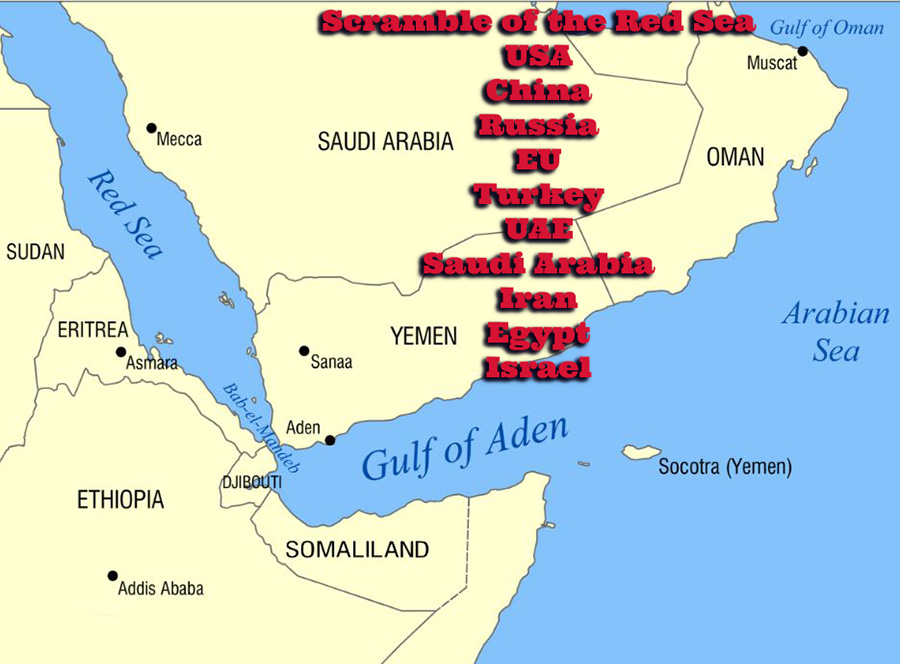
The announcement of the Biden administration to send troops to Somalia as well as discussion with Somaliland regarding their offer of air and sea base facilities to the United States is the latest development in the scramble to exert influence over the Red Sea. No doubt the Red Sea is of vital interest to the United States. The ongoing instability in the Middle East, Horn of Africa, and now Ukraine has strategists and diplomats focusing more greatly on this area as vital to American interests.
Ethiopia’s move from being unaligned to that of having military treaties with the Russian state and its denial of Russian immorality in attacking Ukraine expressed in the United Nations cast doubt on what it may offer Russia in terms of offering military bases on its territory to Russia or China which could threaten Red Sea security to Western powers. The massive war debt Ethiopia has incurred now approaching $66 billion renders it easily manipulated by China or Russia. Under Abiy Ahmed Ethiopia has gone from being a major force against radical Islamic terrorism in the Horn of Africa to being embroiled in increasing domestic instability with unresolved conflicts with Oromo and Tigray opposition. The tripartite alliance of leadership between Somalia, Eritrea, and Ethiopia has begun to be dismantled by the election of Hassan Sheikh Mohamud as President of Somalia. Still Al Shabab continues to survive creating havoc.
When I was a college student at Texas A&M studying military history in the 1970s and later as young Army officer we studied the strategic importance of the Red Sea mostly stressing the Suez canal which allows movement from the Mediterranean Sea to the Indian Ocean. Historically about ten percent of world trade went through this vital pathway. However today the importance of the Red Sea has been multiplied greatly by growing competition of the major powers, growing influence of the Arab states, Iranian expansion interests, and a late awakening of African states of the concept of naval power to protect their interests.
Analysts such as Alex de Waal in the The Africa Report and editorials for the SomiTribune have noted that the growing instability in the Horn of Africa in Sudan, Eritrea, and Somalia has progressed due to the weakness of the African Union, United Nations, and ineffectual influence of the Arab states.

